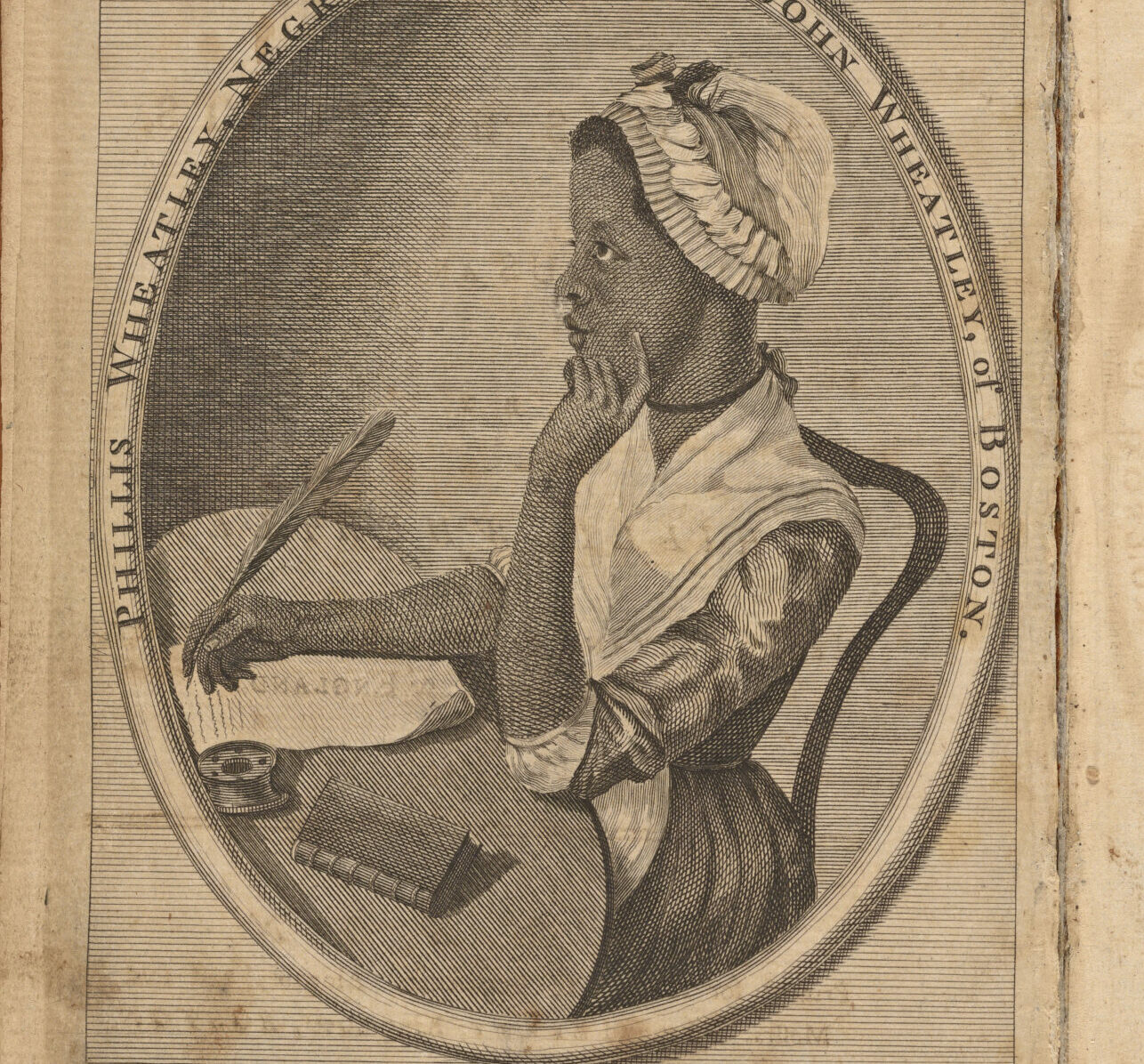The Smithsonian’s National Museum of African American History and Culture has acquired the largest private collection of items to bring new context and perspective to the life and literary impact of poet Phillis Wheatley Peters (c.1753–1784), including one of the few manuscripts written in the poet’s hand.
Born in West Africa and captured by slave traders as a child, Wheatley Peters became the first African American to publish a book of poetry with the 1773 release of her Poems on Various Subjects, Religious and Moral in London. A rare and exciting highlight of this acquisition is a four-page manuscript of a poem, “Ocean,” written in ink by Wheatley Peters’ hand, the only copy that exists today, and unpublished before 1998. The poem was likely composed on her return voyage to America from England in September 1773.
Six of the 30 objects in this collection were published during her life span. Selected items from the collection can be viewed online through the Searchable Museum website. Plans to display these new acquisitions are in the works. The museum currently recognizes Wheatley Peters in the Paradox of Liberty display in the “Slavery and Freedom” exhibition with a statue and a copy of Poems on Various Subjects, Religious and Moral.
“Phillis Wheatley Peters’s poetry brought her renown in abolitionist circles and presented as proof of the humanity of those of African descent and the inhumanity of slavery,” said Kevin Young, the Andrew W. Mellon Director of the National Museum of African American History and Culture. “Scholars continue to parse through her work to determine when and where she posed resistance to slavery; her poem ‘On Being Brought from Africa to America’ is considered to be a chastisement of slavery to the millions of white Americans undergoing the religious revival movement known as ‘The Great Awakening.’ This must have pricked Thomas Jefferson’s conscience, for his 1785 publication of Notes on the State of Virginia dismissed Wheatley Peters’s talent as coming from religion and religious training rather than intellect.”
Additional highlights of the collection include:
The publication of her poems by the AME Church and a biography by the Phillis Wheatley Club in the early 20th century are the only works in the collection published by Black printers. The biography published by the Phillis Wheatley Club takes on a higher level of importance because it documents the educational work of Black clubwomen and the role Black women played as historians of Black life and culture.
“This collection, ranging from the late 18th century to the early 20th century, provides a glimpse of Phillis Wheatley Peters, the poet and Wheatley Peters, the icon, as well as Wheatley Peters, the woman,” said Angela Tate, curator of women’s history at the National Museum of African American History and Culture. “This part of Wheatley Peters’s life has been long removed from popular culture and remembrance. A 1783 poem in this collection is of extreme interest because it is published under her married name of Phillis Peters, and furthermore, it is important to note that she is not presented as Mrs. John Peters.”
Related: N. ANTHONY COLES NEW COUNCIL CHAIR OF NATIONAL MUSEUM OF AFRICAN AMERICAN HISTORY AND CULTURE
EVENTS
Women of Power Summit
Entrepreneurs Summit
Black Men XCEL
Women of Power TECH
PODCASTS
SistersInc.
Your Money, Your Life
LATEST LISTS
BE 100s
B.E. Registry of Corporate Directors
ABOUT
BLACK ENTERPRISE is the premier business, investing, and wealth-building resource for African Americans. Since 1970, BLACK ENTERPRISE has provided essential business information and advice to professionals, corporate executives, entrepreneurs, and decision makers.
INFORMATION
Management
Sales Partnership Solutions
Privacy Policy
About
Contact
Subscribe to Newsletter
Masthead

